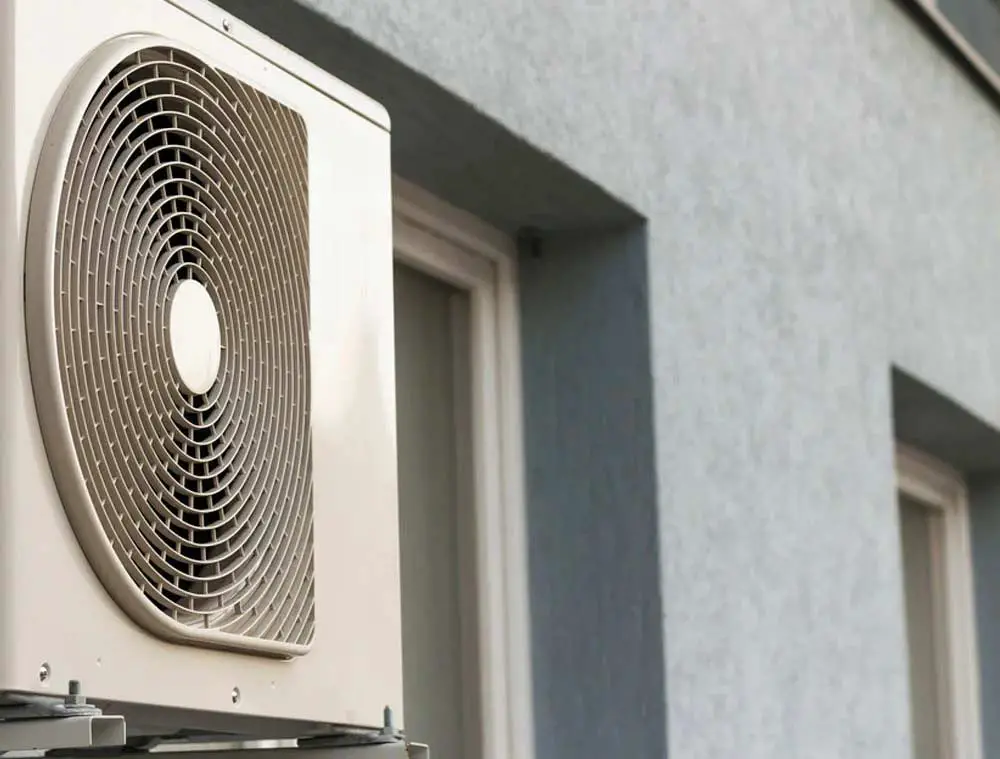If you're looking for a comfortable home where your family can relax, the key to success is getting an air conditioning system that works right for you. While it may seem a bit intimidating when trying to choose from all the different kinds of systems available on the market, once you understand how AC systems work and what their benefits are, you'll see why they're essential for guaranteeing maximum comfort in your home. In this blog post, we'll explain exactly why having a top-quality AC system is key to achieving optimal home comfort levels - so read on!
Air Conditioning Systems: A Comfort Essential
Image source: unsplash.com
With summer temperatures being at an all-time high, it's no wonder that air conditioning systems have become a comfort essential for most households. Whether you're trying to catch a good night's rest or simply relax in the comfort of your own home, an AC unit can make all the difference. However, purchasing an air conditioning system can be expensive, and not everyone can afford to pay for it all at once.
That's where financing options come in. Many companies now offer affordable financing plans to make it easier for customers to purchase and install an AC unit without breaking the bank. So, if you're struggling to stay cool this summer, financing an AC unit could be the solution you've been looking for. Just make sure to do your research and find a plan that works for you.
Temperature Control: Customizing Your Comfort
The beauty of modern air conditioning systems is not just in their ability to cool your home, but also in their capacity to allow for customization of comfort. With features like programmable thermostats, you're able to set the temperature to your exact liking, and even schedule temperature changes throughout the day. During the summer months, you might prefer a cooler environment during the night for a comfortable sleep, and a slightly warmer setting during the day to save on energy costs. With intuitive AC systems, you can program these preferences easily, having your home at the ideal temperature whenever you want it. This level of personalization ensures your home remains a haven of comfort, tailored to your individual needs.
Humidity Regulation: Creating Ideal Indoor Conditions

Image credit: howardair.com
Another crucial aspect of indoor comfort is managing humidity levels. Excessive humidity can make your home feel muggy and hotter than it is, while too little humidity can cause dry skin, irritated sinuses, and increased susceptibility to colds and respiratory infections. Modern air conditioning systems do more than just control temperature; they also help balance indoor humidity to create ideal conditions.
Equipped with dehumidifiers, these systems extract excess moisture from your indoor air, preventing the growth of mould and mildew, and making your home feel cooler and more comfortable. On the other hand, during drier months, your AC system can also add moisture back into the air, helping to prevent dry, itchy skin and other discomforts associated with low humidity. This level of humidity regulation ensures that your home maintains optimal indoor conditions all year round, further enhancing its comfort quotient.
Improved Air Quality with AC Systems
Air conditioning systems play a vital role in improving indoor air quality. Modern units come with built-in air filters which remove airborne particles such as dust, allergens, and other pollutants, from the air before it's circulated back into the room. By doing so, the AC system ensures that the air in your home is cleaner and healthier to breathe, making it a significant asset for those with allergies, asthma, or other respiratory issues. Moreover, regular maintenance and timely filter changes can enhance the effectiveness of your AC in filtering out these contaminants. By contributing to better air quality, an air conditioning system adds to the overall comfort and well-being of your home, making it an essential household appliance.
Energy Efficiency and Cost Savings
An often overlooked advantage of modern air conditioning systems is their energy efficiency and potential for cost savings. Today's AC units are designed with advanced technologies that prioritize energy conservation. For instance, features like variable-speed motors and two-stage compressors can significantly reduce energy consumption by allowing the system to adapt and operate according to the cooling needs of the home.
Meanwhile, programmable thermostats allow homeowners to schedule their AC use around their routines, preventing unnecessary energy wastage when no one is at home. These energy-efficient features translate into reduced energy bills, providing long-term cost savings. At the same time, they contribute to environmental sustainability by lowering your home's carbon footprint. Thus, an efficient AC system not only heightens comfort but also makes for a smarter, greener choice for your home.
AC Systems: Year-Round Comfort Solutions
Air conditioning systems are not just for summer heat; they are truly a year-round solution for optimal comfort in your home. In the winter months, certain AC systems can also provide heating, ensuring your home remains cosy and comfortable. Additionally, systems with heat pumps utilize energy-efficient methods to heat your home by absorbing heat from the outside air and transferring it indoors.
The air filtration and humidity regulation capabilities of modern AC systems are beneficial throughout the year, especially during allergy seasons and dry winter months. Indeed, with an efficient AC system, you are guaranteed comfort in your home, regardless of the season. The investment in an AC system is an investment in your comfort, health, and overall quality of life, proving its place as an essential component of a comfortable home.
Factors to Consider When Choosing an AC System
Image source: unsplash.com
When it comes to choosing an air conditioning system, there are several key factors to consider to ensure you get the best fit for your home and your needs. First and foremost, the size of your home is crucial in determining the capacity of the AC unit you will need. An AC unit that is too small will struggle to cool your home effectively, while one that is too large will cycle on and off too frequently, leading to increased wear and tear.
Secondly, consider the energy efficiency of the system. Look for AC units with a high Seasonal Energy Efficiency Ratio (SEER) as they tend to be more energy-efficient, which can lead to significant savings on your energy bills over time.
Thirdly, take into account the noise level of the unit. Some AC systems operate very quietly, which can be a valuable feature if the unit is located near bedrooms or if you value a quiet environment.
Finally, consider the quality of the air filters and the ease of maintenance. An AC unit with high-quality filters can significantly improve your indoor air quality, while a unit that is easy to maintain will ensure that it continues to function effectively. Always make an educated choice; it's the best choice.
Proper Maintenance for Peak Performance
It is crucial to remember that for your air conditioning system to function at its best, regular maintenance is required. Annual service checks by a professional technician are recommended to ensure the system is operating at peak efficiency, to diagnose potential issues before they escalate, and to prolong the lifespan of the system. In addition to professional services, routine maintenance tasks like cleaning or replacing the air filters, checking refrigerant levels, and cleaning the condenser and evaporator coils can be done by homeowners themselves.
Ensuring the system is free from dust and debris can significantly improve its efficiency and result in enhanced performance. Moreover, keeping the area around your outdoor unit clear of leaves, grass, and other obstructions can improve air circulation and reduce system strain. With proper maintenance, your air conditioning system will continue to provide optimal comfort, energy efficiency, and air quality, reinforcing its value in your home.
Upgrading Your AC System for Enhanced Comfort
Upgrading your existing air conditioning system can substantially enhance the comfort level in your home and even lead to considerable energy savings. An upgraded AC system can offer improved performance, decreased noise levels, superior air quality, and advanced features like programmable thermostats or smart home compatibility. For instance, an upgrade to a system with variable-speed technology can ensure consistent temperatures, while reducing energy usage.
High-efficiency models may also incorporate better air filtration systems, significantly improving indoor air quality by effectively filtering out dust, allergens, and pollutants. Moreover, smart thermostats can learn your patterns and adjust the temperature settings accordingly, adding to your convenience. Upgrading to a modern AC system is therefore a smart choice, ensuring enhanced comfort, better air quality, and energy efficiency, thus making your home a more enjoyable living space year-round.
My Final Thoughts
AC systems are a necessity in the home, offering year-round comfort and improved air quality. When choosing an AC system, consider factors such as size, efficiency, noise level, and filters. Additionally, proper maintenance is key to peak performance: annual service checks and routine upkeep will ensure your system is running optimally. Finally, if you're looking for enhanced comfort and energy savings, consider upgrading your system with advanced features such as variable-speed technology, smart thermostats, and better air filtration systems. Indeed, a well-functioning AC system is essential for achieving optimal home comfort all year round.



 Author: Matthew Chiappini
Author: Matthew Chiappini